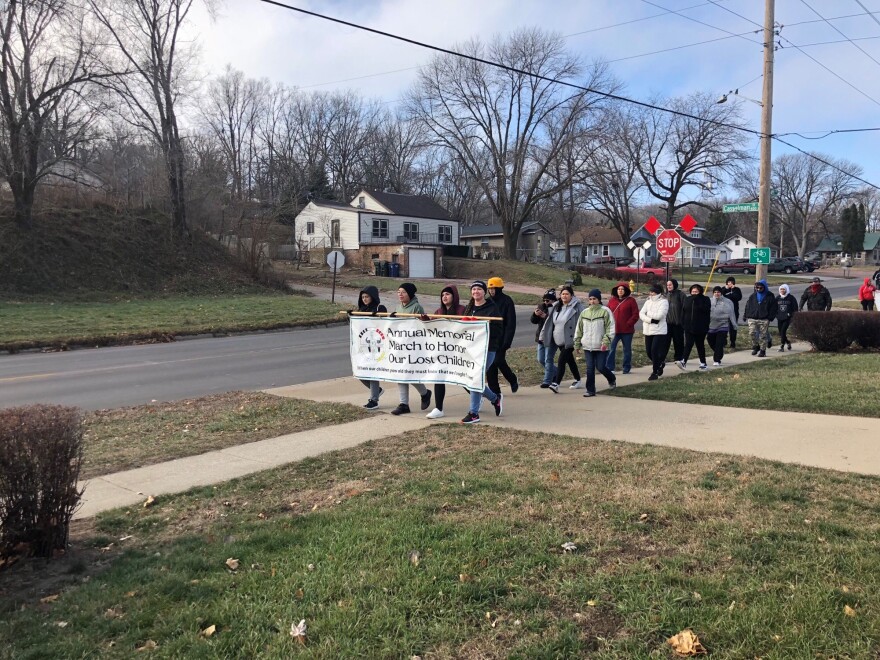Native communities throughout the northwestern Iowa region will march through Sioux City Wednesday to memorialize children removed from their homes and put into the foster care system.
At this year’s Memorial March to Honor Lost Children, activists will turn their focus on how the Native American community can heal from its past historical traumas and move forward.
“Even doing the March, we’ve had non-natives attack us verbally, cussing, yelling. And so now we pray for them,” said Terry Medina, one of the organizers who has been with the movement since its inception. “We don't try to get revenge. It's all about trying to be forgiving.”

Activist and memorial leader Manape LaMere said the community has come a long way since the march first began as a protest 19 years ago. In that time, the Native community has worked on building in-roads with organizations like the Department of Human Services and Child Protective Services, he said.
“Our hope is that every year we get better and better at providing services and building bridges between our community and those services,” said LaMere. “And, hopefully, our big goal is that someday the disparities that exist here in Iowa, and in other states and with the Native community, that those numbers start to turn around.”
The Department of Human Services reported 143 active Native children cases for the western Iowa region in the month of October. Nearly half of the children were placed with relatives rather than foster care homes.
Director of Foster Care and Adoption at Lutheran Services of Iowa Dawn Luetje said the efforts to place Native children with relatives or within homes in their community has increased through legislation, like the “Family First Prevention Services Act.”
Still, a disproportionate number of Native children are placed in foster care each year, she said. American Indian children made up 21 percent of Woodbury County’s foster cases, while Native populations make up less than 4 percent of the population.

A shortage of foster care homes in western Iowa has made placements in Native communities harder, she said.
“It hurts your heart because you know these kids need to be connected with their families, they need to be connected with their culture and their traditions,” Luetje said. “We’re really trying to keep them connected here.”
Organizers held educational sessions on implicit bias, Native traditions and the impact of historical trauma on Monday and Tuesday. LaMere said he wants to use these sessions to educate more non-native families on how to raise an American Indian child.
“Our hope is that one day Sioux City could potentially be a hub for maybe all the state foster parents that might need to take themselves or their children; somewhere for them to all learn,” he said.
The march will begin Wednesday morning at War Eagle monument, a sacred site within the Native community. From there, participants will walk around three miles to downtown Sioux City, stopping at different outdoor sites around the city to pray.
“And, hopefully, our big goal is that someday the disparities that exist here in Iowa, and in other states and with the Native community, that those numbers start to turn around.”Manape LaMere, activist and leader
The memorial will conclude with a traditional meal and a ceremony, “Calling Home Our Lost Birds," at the Sioux City Convention Center.
Medina said he hopes each participant leaves with spiritual healing and the empowerment to continue the work.
“We still got trauma. We still got a ways to go but, through prayer, through our cedar sage, sweetgrass and tobacco — what we use to heal and cleanse our route — we're trying to move forward in a good way,” he said.




